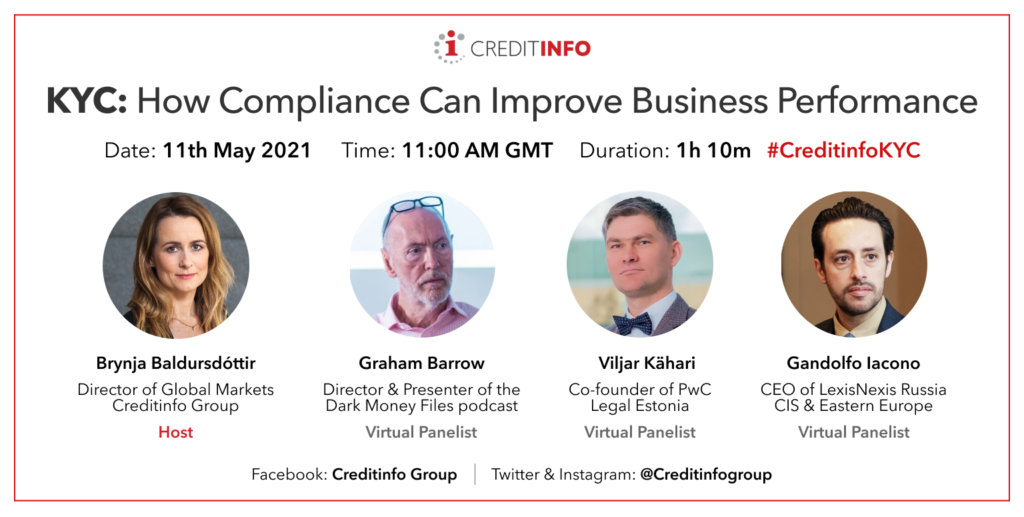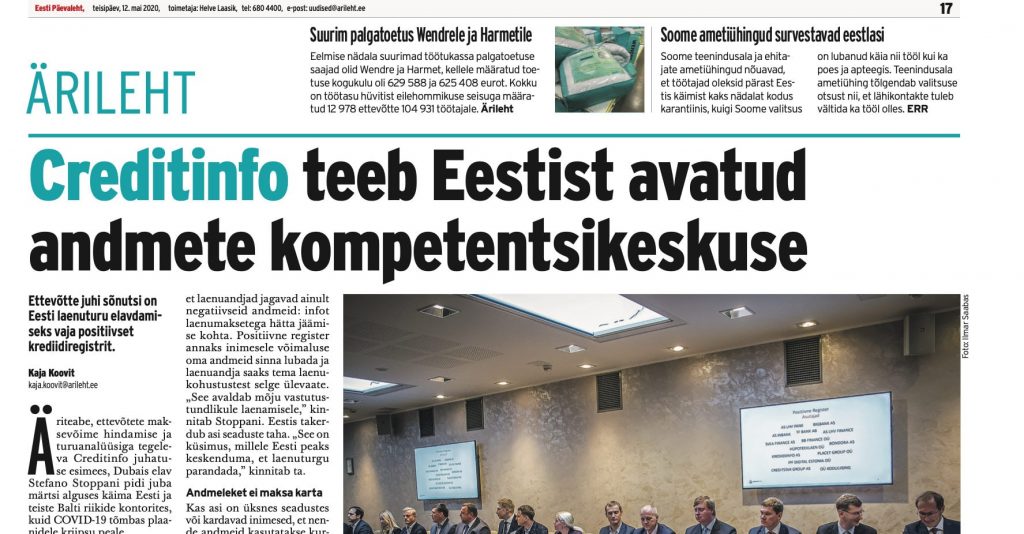Retrospective of the semi-annual statistics of the Register of Payment Failures in Estonia

The Payment Default Register managed by Creditinfo Eesti reflects the debts of private individuals and companies and thus helps to make smart credit decisions. It is the first and oldest register containing debt data, which was established in 2001 by Estonian banks.
There are tens of thousands of people with payment defaults in Estonia
As of the end of the first half of 2023, there were 57,694 individuals with valid payment defaults. Compared to the period a year ago, the number decreased a bit.
When the debt is liquidated, the current payment default is marked as closed – at the end of the first half of 2023, there were 109,766 private individuals with closed payment defaults.
A closed default shows that the debt has been paid, but at the same time it gives the creditor a warning that the person has had problems paying bills in the past and it allows for a more accurate assessment of their creditworthiness. In the case of private individuals, closed payment defaults are published for up to 5 years after the payment default has ended.
The number of companies with payment defaults is increasing
As of the end of the first half of 2023, there were 21,121 legal entities or companies-institutions with valid payment defaults. Thus, there has been an increase of 3.3% compared to last year.
There were 32,836 legal entities with closed payment defaults. In the case of companies, the information provided will be published for another 7 years after the closing of the payment default.
There are more than 150 thousand active payment defaults in the Register
There were 128,405 active payment defaults in the Payment Default Register of private individuals at the end of the first half of the year. The closed payment defaults for private individuals with payment defaults reached to 350,120.
There were 44,472 active defaults of legal entities at the end of the first half of the year. There were 65,816 closed defaults of legal entities.
The number of active payment defaults has increased
In total, there were 172,877 active payment defaults published in the Payment Default Register. If one also adds information of closed payment defaults, the total number of payment defaults in the Payment Default Register is 588,832, which has increased by approx. 6.6% compared to the end of 2022.
By Creditinfo Estonia.
Visit: www.creditinfo/ee/en
AS Creditinfo Eesti appoints Elari Tammenurm as new CEO

Estonia, 9th May 2023 – Creditinfo Group, a global service provider for credit information and risk management solutions, today announces the appointment of Elari Tammenurm as the new Chief Executive Officer (CEO) of its Estonian branch. Elari will support and maintain Creditinfo’s legacy as a leading partner for business and risk management decision making and drive the sustainable growth of AS Creditinfo Eesti.
Elari joined Creditinfo in 2019 as Director IT in the Baltics, progressing to Management Board member and Head of IT Baltics. Now as CEO, Elari will be responsible for the largest and oldest credit bureau in Estonia.
In his role, Elari will work with various internal and external stakeholders to ensure the company’s approach to strategy and growth remains first class in terms of meeting customers’ expectations and needs.
Elari Tammenurm, CEO of AS Creditinfo Eesti said: “Today everyone has access to vast amounts of data; however, the abundance of data can make it more difficult to make well-informed business decisions in an ever-changing business environment. In my new role, it’s my goal to further ensure the facilitation of this process through delivering world class solutions to the Estonian market including various new Decision Analytics and Scoring related products. This will allow us to continue driving valuable and positive outcomes for our clients and enable greater access to finance and economic growth in Estonia.”
Paul Randall, CEO of Creditinfo Group, said: “With roots in financial services and IT strategy, Elari knows how to solve our clients’ unique business challenges. His knowledge of the company, our people, our industry, and our clients is a huge advantage for AS Creditinfo Eesti’s innovation and growth as we continue to expand in the Estonian market. We’re proud to have Elari leading the way.”
END
About Creditinfo
Established in 1997 and headquartered in London, UK, Creditinfo is a provider of credit information and risk management solutions worldwide. As one of the fastest-growing companies in its field, Creditinfo facilitates access to finance, through intelligent information, software and decision analytics solutions.
With more than 30 credit bureaus running today, Creditinfo has the most considerable global presence in this field of credit risk management, with a significantly greater footprint than competitors. For decades it has provided business information, risk management and credit bureau solutions to some of the largest, lenders, governments and central banks globally to increase financial inclusion and generate economic growth by allowing credit access for SMEs and individuals.
For more information, please visit www.creditinfo.com / www.creditinfo.ee
Creditinfo Estonia Management Change

EXTERNAL ANNOUNCEMENT
07/02/2023
Ms. Ege Metsandi, CEO and Chairman of the Management Board for Creditinfo Estonia is leaving her position at the company. During the next 6 months, Ms. Metsandi will be working closely with the interim Chairman and CEO, Mr. Elari Tammenurm, currently the Head of IT – Baltics, along with the Estonian team to ensure a seamless handover continues until a replacement is found.
Paul Randall, Group CEO for Creditinfo, advised, “During her 6 years of tenure, Ege has successfully developed the company, both financially and commercially. I want to personally thank Ege for her efforts, utilizing her experience and great insight in risk management to build the Creditinfo brand in Estonia.
Everyone at Creditinfo wishes Ege well for her future.” Ege added, “I leave a very strong and talented team behind at Creditinfo. I look forward to making certain of a smooth transition to keep up the positive momentum that we have established together over the last 6 years.” Established in 1997, Creditinfo Group provides credit information and automated risk management services around the world.
The Know Your Customer (KYC) world and Creditinfo’s role in it.

The acronym KYC stands for three very simple and understandable words – Know Your Customer. But the meaning of the processes and expectations behind those three letters are most often not so simple and straightforward, as whoever must deal with this today already well-known acronym, knows that the world and the industry behind this magical acronym, is already vast and growing every day.
KYC in very essence means that you must have understanding and information of the background of your customer. Often this information is divided into three basic categories:
- Identification of the persons connected or operating behalf the customer.
- The field of activity or daily business including the understanding of the origin of the customers funds.
- The understanding if customer possesses certain risks while having any business relationships with him.
Mainly this sort of detective work is required in the purpose of mitigation the risks in anti-money-laundering/fight against terrorism financing (AML/CTF) but it is also relevant in the process of imposing international sanctions as sanctioned persons are interested that their business interest would remain undiscovered.
Even companies that are not subject to AML regulation need to ensure that they stay out of trouble caused by risks that are risen because of partners or clients with fraudulent, criminal, or sanctioned background, as this may result with loss of revenues/funds, bad business reputation or fines by authorities.
So therefore, it is essential for market entities to trust their business affiliates and therefore they need to verify that everything is OK with their customers and threat of the damage caused by realization of different risks, is minimized.
What is happening in Europe to strike this conversation now?
One very practical side for knowing your customer is to be sure that you’re not violating any sanctioning regime in force. Sanctions and sanctioning regimes may not be familiar to all of us who we just are involved our day-to-day business, but this obligation is something we all must know and follow. International sanctions are seen as sort of political means for influencing certain group of entities, jurisdictions, or organizations to behave in line to accordance with the international human rights, rules of law and territorial integrity. Sanctions are imposed in a way that all private and legal entities are obliged to fulfill them, authorities who are imposing them are usually international organizations (EU, UN) or state governments.
As Russia launched massive war campaign in Ukraine in February 2022 and has performed several actions against Ukraine’s territorial integrity already from year 2014 this kind of behavior has naturally found a reflection from EU by imposing sanctions. As from 2014 there was already two regimes in force (regulations EU No 269/2014 and No 833/2014) it was easy on 2022 to EU to add several sanctioning updates (altogether by 8 packets) against Russia (and Belarus).
As the conflict remains in Ukraine and also as there are several war crimes discovered performed by Russian troops during the occupation of Ukraine, we can be more than certain that EU will impose more updates to Russian sanctioning regimes. This only intensifies the need for market entities to have a clear understanding on what are the situation regarding the restrictive measures in force and where to find that information.
How is CREDITINFO playing a role in this?
Mitigating the risks is always the question of having updated and trustworthy information that person must have for making decisions and enforcing correct procedures. Regarding risk mitigation and imposing enforced sanctioning regimes clients often face themselves in front of different questions –
- What exactly do they have to do?
- How do they do it?
- Where can they find help and trustful partner for this?
- Are the solutions for doing it comfortable and simple to use?
- How expensive is it?
Providing both, the trustworthy information from respectful sources and the solution for being compliant in the regards to that obligation (by using Creditinfo-offered solution) is one of the ways of building up successful client relationship in KYC sector (obligations in KYC area may differ depending on the AML/TFC and imposing sanctions viewpoint). KYC procedures regarding sanctions can be divided into two different service blocks:
- Identifying the persons behind and connected to legal entity.
- Easy to use, reliable screening solution for determining whether there are imposed sanctions or not.
It is important to have flexible products in place for meeting the needs for most of the market entities as clients tend to prefer to order all the solutions from one place. For example, clients may have the need only for determining certain persons connected with legal entities (like UBO’s), other clients may only need data sources for setting up internal screening procedures for their inter-company use, while others are just willing to outsource everything (analysis, data and screening).
Lastly, instead of being in the last mile lets be the first! As already mentioned, there are different market entities who are operating in KYC business, and they are all seeking for cost efficient and trusted data sources for providing best data quality with best price to their customers. Creditinfo Group’s presence in several different countries, with the direct access to local state registry information or other base data source in those countries therefore makes us one of the trusted partners for well-known global companies.
KYC products are in process of continuous development and as the needs for our clients change, we need to align our services accordingly. If there are ideas, proposals, or questions, please feel free to reach me via email – urmas.pai@creditinfo.com
Urmas Pai
KYC & Fraud Global Product Manager
Number of bankruptcies up by 26% in Estonia

Creditinfo’s bankruptcy survey revealed that the amount of bankruptcies grew last year for the first time in ten years and increased 26% compared to 2019 in Estonia.
Last time the number of bankruptcies grew significantly was due to the global economic crisis in 2008 and 2009 when the growth measured up to 150% in annual comparison. There was marginal growth (+2.4%) in 2017, but this was a shift by eight companies. In 2020, the number of bankrupt companies increased from previous year’s 271 to 341 ( 26%). The share of companies that have gone bankrupt is at 0.15% of all registered companies.
“The amount of bankruptcies remained at a low level in 2020, but there was still a trend of significant growth in the number of bankruptcies that we have not seen since the beginning of the previous great economic crisis. It may be assumed that this was partly due to the effects of the corona crisis, but since the bankruptcy process is long-term, we will probably see the greater effect here next year,“ explained Creditinfo Estonia’s analyst Helen Tinkus.
There was also growth in the last decade’s continuous downtrend of the number of asset-less companies, where bankruptcy rates dropped due to the absence of assets. During 2010-2019 the number of dropped bankruptcies decreased on average by 14% yearly. In 2020, the number of asset-less companies increased by 49%.
“This might have been caused by the fact that the economic environment had become insecure because of the corona crisis. More business plans failed completely and the companies were unable to gather any assets at all before the insolvency situation developed. At the same time, there were also some asset-less companies that showed substantial turnover numbers in the years prior to the bankruptcy,“ Tinkus added.
The areas with the highest rate of bankruptcy are still hospitality and catering, manufacturing industry and construction. The rate of bankruptcy was above the average in wholesale and retail as well.
“There have been no changes in the fields of activity with the highest bankruptcy rate in the recent years. But the share of bankrupt companies in the hospitality and catering sector grew faster than in others, both compared to other fields of activity and to previous periods. These are the fields that was influenced the most by the corona crisis and the restrictions. Based on the payment defaults and wage compensations statistics, we can predict a greater effect of the crisis on the companies operating in the field also in the coming years,“ Tinkus stated.
Creditinfo Estonia Ltd has conducted bankruptcy surveys about Estonian companies since 2000. During the 20 years the number of bankruptcies has both increased and decreased in waves, reaching the peak level in 2009 as a result of the global economic crisis. In 2011 the number of bankruptcies fell by a remarkable 40%, in 2012 by 20%. Bankruptcies have decreased steadily also in the following years, reaching the pre-crisis low level in 2015.

Ends.
Media Contacts:
Rain Resmeldt Uusen, Head of Marketing – Creditinfo Estonia
Email: turundus@creditinfo.ee
Tel: +3725018998
Can KYC Bring Opportunity For Business Growth?

For many, due diligence checks and Know Your Customer (KYC) processes are simply seen as compliance requirements imposed by regulators that can add friction and cost to their business, but that is a flawed assessment. In fact, KYC has many advantages for business and can act as the differentiator needed for your business to survive and thrive in the increasingly digital, global economy.
In a market full of uncertainty, true understanding is a valuable commodity. Today, many organizations have been forced to re-evaluate what they need to do to ensure not just their longevity, but their continued success. Knowing the pressures that customers and prospects face, being able to support them through their challenges and shield your own business from unnecessary risk is key.
However, there are still too many treating KYC compliance like a tick box exercise, and not the competitive point of difference it can be.
The potential and possibilities that arise from a well-conceived and resourced compliance organization is remarkable. Whether it’s through the use of better data, fusing local data with global intelligence, or understanding the emerging threats from organized, financial criminal groups and working to counter them, good compliance can help businesses avoid the most damaging risks and seize the most lucrative opportunities.
At Creditinfo, we’ve long understood this. Our customers know that the combination of our decision analytics technology and access to a wide range of traditional and alternative data provides them with the tools they need to better understand their customers and take the appropriate steps to capitalize on the opportunities on their doorstep.
These opportunities are only ever going to increase, and those that become complacent on compliance, will begin to fall behind.
Tomorrow, on May 11th, we are hosting a webinar with leading experts on the regulatory environment and financial crime to delve into just this. Our panel of experts will discuss what organizations need to do to de-risk their operations and how they can set themselves up for future success.
This virtual panel will include speakers from PwC, Lexis Nexis, and The Dark Money Files, and will cover compliance technology, regulatory trends, and the ever-evolving threat landscape, to help you understand what you need to do to protect your organization from financial crime, and the opportunities better KYC processes can bring to your business.
To hear more about the benefits better KYC compliance could create for your business, register your attendance today.
You can also follow along on Twitter with the hashtag #CreditinfoKYC.
Creditinfo granted AISP license, launches intermediary service

On Monday, April 5th, the Financial Supervision Authority issued AS CREDITINFO EESTI with an account information service provider (AISP) license. This license allows the company – which has a strong history of more than 25 years mediating credit and business data – to act as an intermediary between institutions, providing read-only access to bank account information in order to enable the delivery of mutually beneficial services to account holders.
Creditinfo now has the ability to provide bank account owners in Estonia with access to new, enhanced services from authorized companies, such as those providing loans or payment-by-installment options, by sharing information from their account statement.
This sharing of balance and transaction data takes place in an automated form that makes the process of applying for credit or payment-by-installment significantly easier and faster for both the owner of the account and the service provider.
“We are always looking for opportunities to expand our business and better serve our customers in order to remain the most reliable, strong and innovative business partner to both individuals and companies in this fast-evolving field,“ Ege Metsandi, CEO of Creditinfo Estonia explained. “The whole area of assessing creditworthiness and solvency is moving toward automation, so credit decisions can be made as quickly and reliably as possible. The greatest added value here can be created by combining high quality data and the best technological solutions. Creditinfo with its long history and international network is leading the way in both of these areas. With this new AISP license, we can be an even better partner to our customers by helping to further de-risk lending and provide better access to appropriate financing for their specific needs“ Metsandi added.
Law firm WALLESS advised Creditinfo throughout the application process for the AISP license.
AS Creditinfo Eesti is the largest company providing business information and risk management services in Estonia. First founded in 1993, the company has been an affiliate of Creditinfo Group since 2016.
Additional information:
Ege Metsandi
CEO and board member of Creditinfo Estonia , Email: ege.metsandi@creditinfo.ee
Tel: (+372) 5078172
Creditinfo’s new KYC tool allows affordable background checks of international business partners

Creditinfo is the first company in Estonia to bring the shared KYC utility “Know Your Client” to the market. The tool gathers the data an entrepreneur needs to know about clients and business partners from both Estonia and international reliable databases covering the whole world.
According to the rules of the fight against money-laundering and financing of terrorism, each company is responsible for ensuring that every business transaction and cooperation agreement complies with the terms stated in the anti-money laundering law (the Anti-Money Laundering and Countering the Financing of Terrorism Act). In essence, it is the duty of a company to know their clients and business partners in case of both single transactions and longer business relationships.
“Every entrepreneur needs to check the background of the business partner because when the transaction reaches the bank, it may already be too late. The accounts may be frozen and you could end up losing the money,“ Jaanus Leemets, head of Creditinfo’s product development unit explained. “One questionable transaction, no matter how great or small sums are involved, may significantly increase the overall risk rating of the entrepreneur.”
The background checks of companies and individuals operating in Estonia has been a widely available service for years, but checking the background of international partners has been a great challenge for small and medium-sized companies. Access to reliable international databases is very expensive, and the offered solutions are often not suitable for checking single transactions or compiling detailed reports of the parties involved.
“Banks spend millions of euros a year on anti-money laundering background checks, leaving entrepreneurs stranded since they have no resources to afford these services. The results of public search portals are also often not reliable, extensive nor up-to-date enough in their content, especially with international companies, as well as also domestic inquiries. We therefore created a tool that makes inquiries from dozens of different reliable, international databases. The new tool is affordable to small businesses as well and it is also simple to use for single inquiries.“ Leemets added.
To get the entrepreneurs started, Creditinfo offers consultations on the correct implementation of the background check and its proficiency. There is also the option of joining the KYC business school in order to understand the essence of KYC regulations, the precise duties, everyday needs of their companies, and all available options to regularly check the background of clients and business partners without spending too much time.
Media contact:
Rain Resmeldt Uusen
Marketing Manager, Creditinfo Estonia
Email: rain@creditinfo.ee
Players in Baltic Markets (Latvia, Estonia) and Iceland Measure Risk better, benefitting from Covid-19 Impact Score Developed by Creditinfo.

Credit providers need to understand how COVID crisis affected their counter-parties and customers in order to better manage risk exposure and reduce losses. Current scoring models are unable to fully answer these needs as they were developed on pre-crisis data and need time to adjust to new conditions.
Thanks to Creditinfo, Estonia becomes the competence center of open banking

The Head of the company says a positive credit register is needed for boosting the Estonian credit market. Stefano Stoppani, Dubai-based Chairman of the Board of Creditinfo providing business information, solvency assessment and market analysis, intended to visit its offices in Estonia and the other Baltic countries in the beginning of March, but COVID-19 hampered with these plans. Europe is cautious in regulating both data protection and open banking. The aim of the PSD2 directive is to give third parties – licensed companies – access to a person’s bank account information. This is not done just because, but for providing better service, and obviously the account holder must authorize this. The third-party, for example, the creditor, can then see the income of the person and what the money is spent on. Information is needed to determine if the person is able to pay back the loan (s)he wants.




